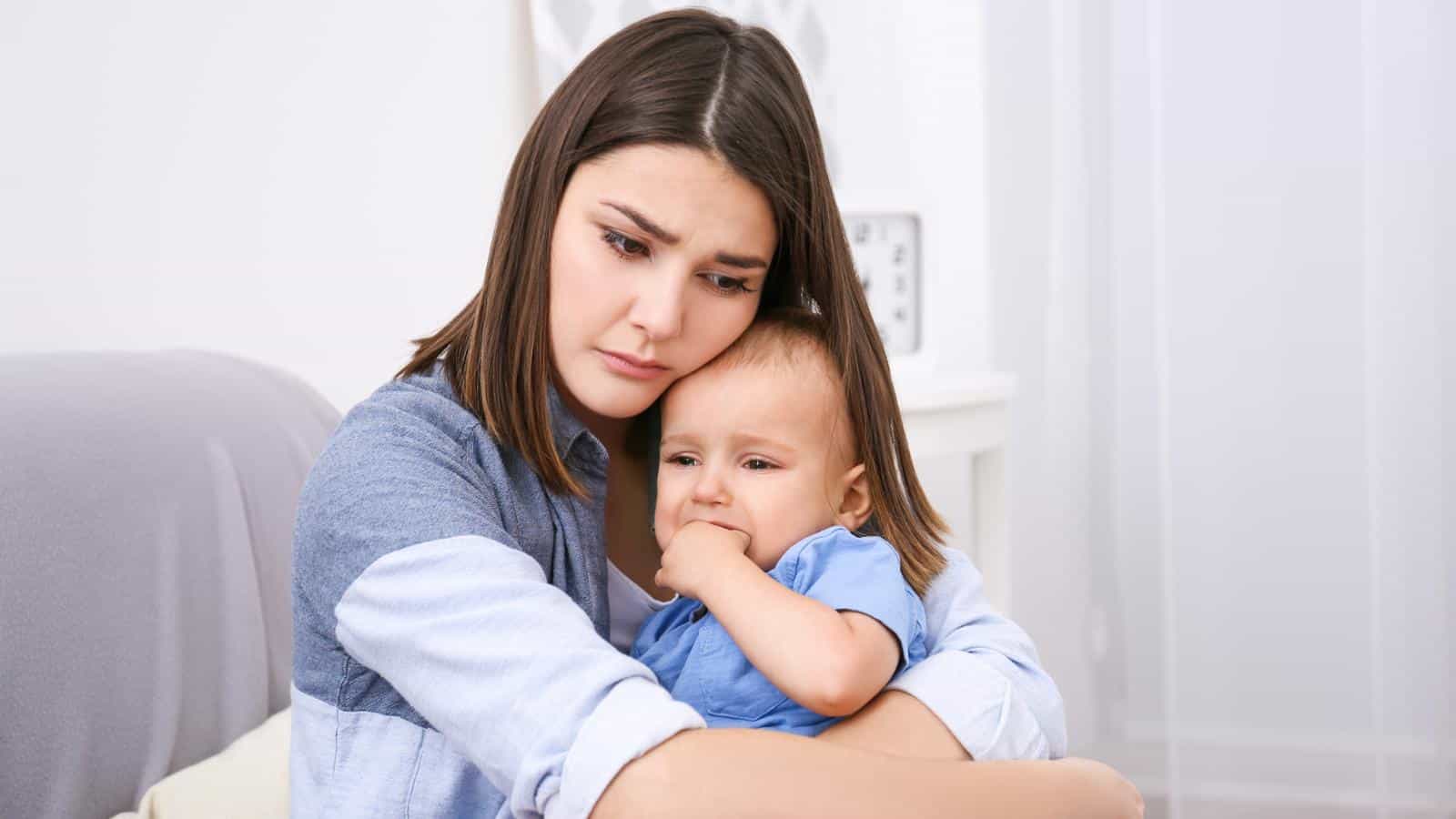Having kids just isn’t the “default” life choice it used to be. Gen Z is breaking away from traditional family norms, choosing a lifestyle that doesn’t include children. Many older women are, therefore, now faced with the reality that they will not become grandparents. But why is this? Why does the younger generation reject the notion of the nuclear family? In this article, we’ll look at some of the most common reasons why younger women are saying no to kids.
The Cost of Living Is Just Too Much

Everything’s expensive these days. Housing? Through the roof. Groceries? Costing a small fortune. Childcare? Might as well be gold-plated. In fact, according to the Office For National Statistics,” In the UK, prices of consumer goods and services rose by 9.6% in the year to October 2022 – the fastest rate in four decades.”
For a lot of young people, the numbers simply don’t add up. They’re trying to save for a deposit, pay off student loans, and maybe have a bit left over for a holiday. Adding nappy costs, nursery fees, and the price of a pram to their budget? It’s almost impossible. The financial reality is so overwhelming that many Gen Zers can’t even imagine how people afford to raise children.
Freedom Comes First

Kids are adorable but they also mean 24/7 responsibility. The younger generation values their freedom and many won’t have kids for this specific reason. Whether it’s travelling the world, building a business or simply having time to focus on themselves, the flexibility to live life on their terms is a priority.
For many, it’s not about rejecting parenthood altogether—it’s just that they value the opportunity to explore life without limits.
Societal Pressure Is Starting to Fade

The “when are you having kids?” question doesn’t carry the same weight it used to. Society has become more accepting of different life choices, and Gen Z is feeling less pressure to tick the traditional boxes of marriage and parenthood. Without the guilt or judgement of older generations, they’re free to carve out lives that reflect their personal values, even if that means not becoming parents.
Childcare Costs Are Astronomical

The average cost for a child in nursery is £148.63 per week so it’s not just the cost of nappies and baby clothes that put people off. In many parts of the UK, these nursery fees can be as high as rent or even a mortgage payment. For Gen Z, who are already stretched financially, the idea of paying thousands each year just for someone to watch their kids while they work makes parenthood feel impossible. Many simply can’t justify the expense when they’re barely
Relationships Look Different These Days

Marriage and babies used to be the ultimate life plan, but that’s not the case anymore. More people are happy being single, focusing on their careers, or building non-traditional partnerships that don’t include kids. Some couples are choosing pets over children and simply don’t want the lifelong commitment to sleepless nights and school fees. Relationships have evolved, and with that, the pressure to have children has eased, giving people the space to ask what they really want.
The World Feels More Dangerous

Let’s be honest, the world doesn’t feel as safe as it used to. Global tensions and unpredictable events mean that people are hesitant to have children. Many feel like they’re constantly navigating uncertainty, and the idea of raising kids in this environment is daunting.
Parenthood Isn’t for Everyone

Not everyone feels that deep, natural pull towards having kids. For years, society pushed the idea that starting a family was just “what you do,” but Gen Z is challenging that narrative. They’re asking themselves tough questions like, “Do I really want this?” and, “Would parenthood make me happy?” For some, the answer is a clear no. And that’s not a bad thing—being child-free is a valid choice and one that lets people focus on living the life that feels right for them.
Climate Anxiety Is a Real Thing

Let’s talk about the elephant in the room – the planet isn’t doing great. From floods in the UK to heatwaves around the globe, the climate crisis is impossible to ignore. For some, the thought of bringing kids into a world filled with environmental uncertainty feels irresponsible. Why have children when they might grow up in a future filled with droughts, food shortages, and wild weather? It’s not just fear—it’s a genuine desire to tread lightly on the planet and focus on sustainability instead of family planning.
Jobs Aren’t as Secure as They Used to Be

Gone are the days when you could leave school, walk into a stable job, and start saving for a family. Gen Z faces a job market full of zero-hour contracts, gig work, and minimal benefits.
Without reliable income or job security, many people feel like they’re always living month-to-month, let alone planning for something as life-altering as a baby. It’s not that they don’t want kids—it’s that the foundation just isn’t there to support such a huge responsibility.
Mental Health Comes First

It’s no secret that mental health is finally being taken seriously, and Gen Z is leading the charge in prioritising their emotional well-being.
For some, the idea of managing anxiety, depression, or burnout while raising children feels like too much to handle. Parenthood is demanding, and many young people are choosing to focus on maintaining their own stability instead of taking on more stress.
It’s Harder to Find a Place to Call Home

Remember when buying a house was a normal milestone for starting a family? That feels like a distant memory. Today, young people are often stuck renting, with little hope of saving for a deposit thanks to sky-high property prices. Sharing a flat with mates or living in cramped one-bedroom apartments doesn’t exactly scream “family-friendly.” Without a stable, secure home, it’s hard to imagine bringing kids into the picture, and many would rather wait—or opt out entirely—than try to make it work in unstable housing.
Social Media Has Changed Priorities

Social media isn’t just about selfies and memes—it’s also reshaping how young people view their lives. Platforms like Instagram and TikTok are full of people sharing their child-free lifestyles, whether it’s jet-setting around the globe, building a dream business, or enjoying hobbies.
Seeing others thrive without kids has opened Gen Z’s eyes to alternative life paths, where happiness doesn’t depend on starting a family. It’s not about being influenced—it’s about realising there are options.
Education Is Taking Longer

Higher education is now a norm for many, but it also means people are spending their twenties in university or paying off student loans. By the time they finish their studies and try to get a stable job, the idea of starting a family feels like something they can push further down the line—or skip altogether.
Education delays everything, from careers to homeownership, and for some, it pushes parenthood off the table entirely.
People Are Choosing Pets Over Kids

It might be hard to believe, but for a lot of young people, pets have become the new kids. They’re loving, fun, and bring companionship without the lifelong commitment to school runs and university fees. Dogs, cats, and even house rabbits offer a sense of family that fits better into modern lifestyles. For some Gen Zers, a pet provides the emotional fulfilment they might once have sought in raising children, minus the financial and logistical stress.
They’re Watching Their Parents Struggle

Many Gen Zers grew up watching their parents work themselves to the bone just to make ends meet. They’re concerned that this could be their life too. For those who’ve seen the toll that parenthood took on their family’s finances, relationships, and mental health, the idea of having kids themselves doesn’t feel worth it.
Fertility Awareness Has Changed Perspectives

Discussions about fertility issues are more common now than ever, and many Gen Zers are learning how complicated and expensive having kids can be, even for those who want them. Fertility treatments, adoption fees, and even the emotional toll of trying to conceive are daunting.
For some, the awareness of these challenges has made them rethink whether they even want to go down that road.
More From Candid Joy

Like this article? Follow Candid Joy on MSN for more.
Up Next:
19 Things That Used to Be Seen as Status Symbols but Aren’t Today
19 Supermarket Staples That Most People Refuse To Buy As They’re Now Too Expensive
18 Unnecessary Products Car Dealerships Push That Aren’t Worth Buying

